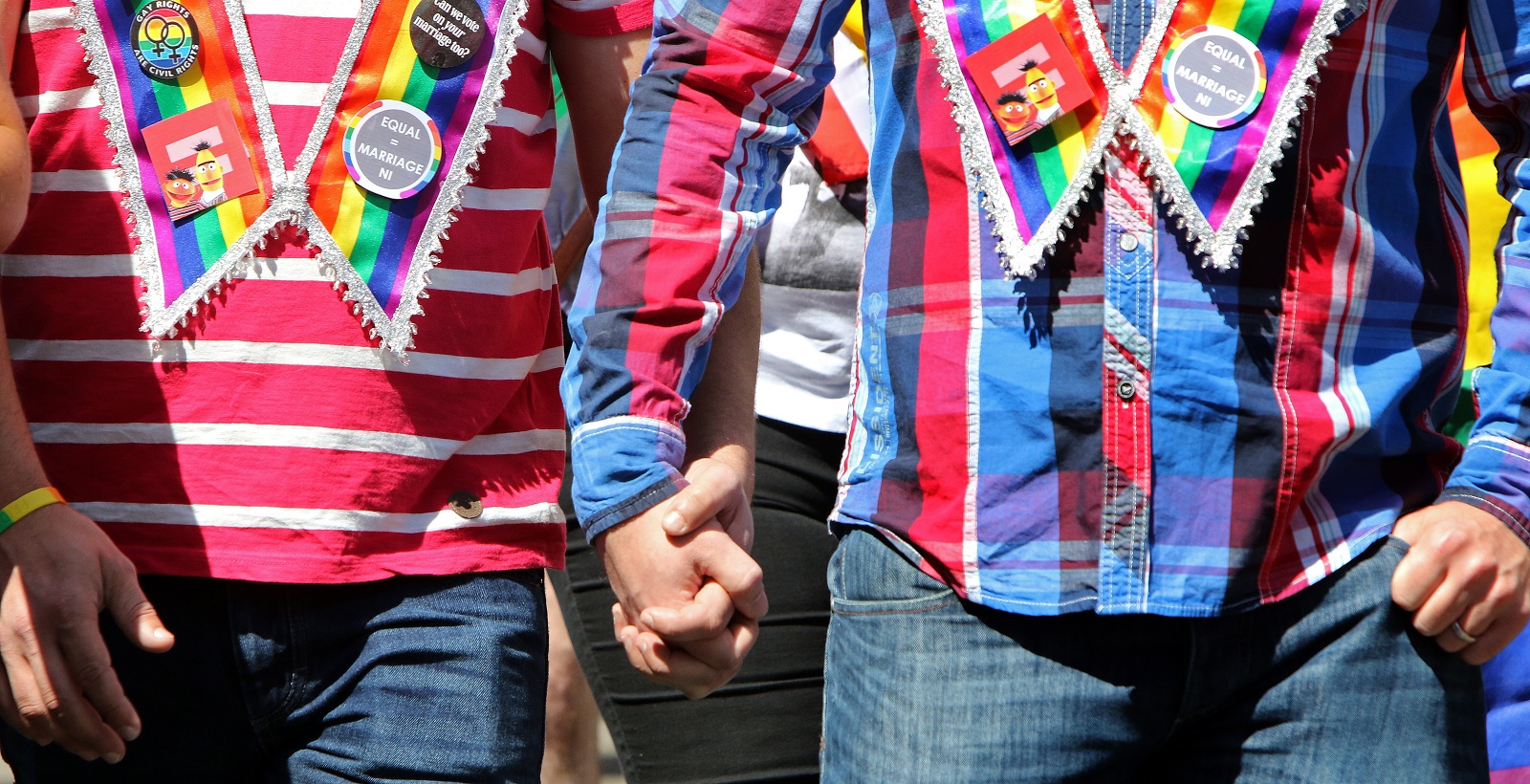A majority of Northern Ireland politicians now support marriage equality

There is now a majority in favour of legalising gay marriage in Northern Ireland.
That’s the claim of a campaign group, who say most Northern Ireland Assembly members support the move.
Clare Moore, from the Irish Congress of Trade Unions, said: “A decisive majority of new MLAs (Members of the Legislative Assembly) to support marriage equality”, at a press conference in Belfast organised by the Love Equality coalition.
The Democratic Unionists Party (DUP), who have a staunch conservative wing, have blocked same-sex marriages in the region for some years.
They used a mechanism called ‘petition of concern’ to stop the measure being debated.
Stormont previously voted in favour of same-sex marriages in 2015, but the DUP used the petition to block the measure.
However in last week’s elections they failed to secure the 30 MLAs they need to push through the petition in this session, and so are no longer able to block the measure outright.
The DUP won 28 seats, losing 10, while left-wing Sinn Fein won 27 seats.
It’s now hoped marriage equality could be achieved once a new power-sharing agreement is decided.
Declan Meehan, of Cara Friend, which campaigns alongside Amnesty International for equality, said: “All of the people of Northern Ireland must be served by the incoming government – that includes the LGBT community.
“Before any new executive is formed, there must be a firm commitment to deliver equal marriage legislation.
“Without that, we know it will be another five years of LGBT people being treated as second-class citizens of Northern Ireland.
“Clearly, we think any new executive should legislate for equal marriage.
“At a minimum, there must be a public commitment by any parties forming a new executive that their members will not deploy a petition of concern to prevent a private members’ bill on equal marriage similar to laws which already exist in England, Wales, Scotland and the Republic of Ireland.”

Arlene Foster, leader of the DUP and Northern Ireland’s previous First Minister, has refused to stand down, despite losing 10 seats.
If they fail to come up with a power-sharing deal, either another election will be called or the UK government will take over.
“I am listening not just to those who voted for the DUP but to those who cast their votes for other parties,” said Mrs Foster, who has faced fierce criticism of her leadership style after her party lost 10 seats in the Assembly election.
Just 1,168 votes separated the DUP and Sinn Féin in the election, meaning that for the first time Unionists will not hold a majority vote at Stormont.
Leader of the Ulster Unionist Party, Mike Nesbitt, who previously said same-sex marriage opponents are “on the wrong side of history” while opposing it himself resigned from his position because of his parties poor performance.
The hardline anti-gay DUP politician Jim Wells retained his seat.

